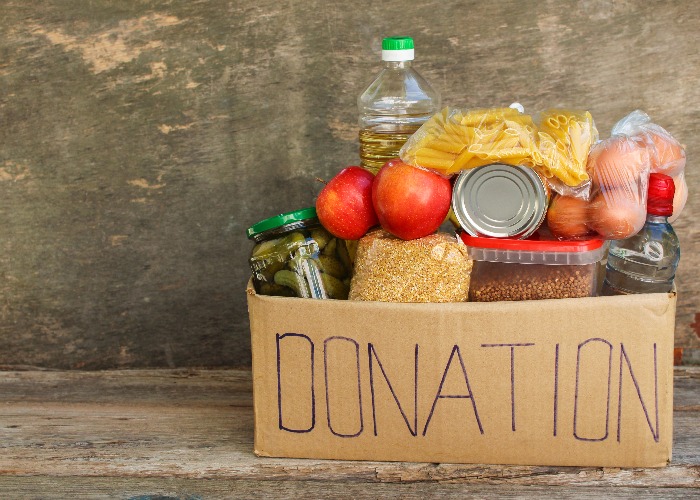Donating to your local food bank: what goods to give

With food bank usage rising across the UK, we reveal the goods (both food and toiletries) they need the most.
Nearly one in five under 15-year olds in the UK lives in a home where the parents can’t afford to put food on the table, according to a recent research by the British Medical Journal.
So it's unsurprising that food bank usage in the UK is soaring.
In it's most recent annual analysis, The Trussell Trust, the UK's biggest network of food banks, revealed the number of supply packs it handed out had jumped 19% to a staggering 1.6 million compared to the previous year.
While they're keen to stress that all donations are welcome, we caught up with the Trust to see what type of goods are typically in shortest supply.
Whether you're in desperate need of help or want to donate supplies, use this tool to find your nearest food bank.

What to donate
Every emergency food parcel provides a minimum of three days’ worth of nutritionally balanced, non-perishable foods that have been donated by people in the local community.
The following items make up a typical food parcel, which means that they are the best items to donate:
- Cereal
- Soup
- Pasta
- Rice
- Tinned tomatoes/ pasta sauce
- Lentils, beans and pulses
- Tinned meat
- Tinned vegetables
- Tea/coffee
- Tinned fruit
- Biscuits
- UHT milk
- Fruit juice
Giving to charity: how to boost donations without paying more
Food banks also accept additional items that are not on the standard packing list and these are then included in parcels as treats, said Tanya Yilmaz, spokesperson for The Trussell Trust.
Items on the list are in the highest demand, however.
“UHT milk and coffee are good examples of items that food banks often run low on, whilst baked beans and pasta tend to be the most commonly donated items.
"It’s always best to check with your local food bank about which items are most helpful if you’re thinking of making a donation,” recommends Yilmaz.

Christmas is coming
With just over two months to go before Christmas, The Trussell Trust are preparing for what is likely to be their busiest year yet.
“We’re seeing record levels of need at food banks, and this shows no signs of slowing down as we approach Christmas,” says Yilmaz.
And it’s never too soon to donate ready for the festive period.
“As demand increases, we’re urging supporters to donate as early as possible to help alleviate pressure from volunteers during its busiest time of the year.”
50 food hacks that are borderline genius
It’s not just food
“It's natural that the first thing anyone thinks to donate to a food bank is food, but toiletries and hygiene products are also extremely important.
“But food banks also try to provide some essential non-food items to adults and children in crisis such as toiletries, household items, feminine products, and baby supplies,” says Yilmaz.
A list of non-food donations encouraged by the trust can be found below, and more details are available on the Trussell Trust website.
Simple tricks to cut your food and drink bill
Non-food donations
Toiletries
- Deodorant
- Toilet paper
- Shower gel
- Shaving gel
- Shampoo
- Soap
- Toothbrushes
- Toothpaste
- Hand wipes
Household items
- Laundry liquid detergent
- Laundry powder
- Washing up liquid
Feminine products
- Sanitary towels
- Tampons
Baby supplies
- Nappies
- Baby wipes
- Baby food

The future of food banks
Yilmaz says that ideally there won't be food banks in the future.
“No one should need to use a food bank at any time of the year so that’s why we’re working towards a future to end the need for food banks altogether.”
For more information on how to make a donation, read our guide to giving food to your local food bank.
Comments
Be the first to comment
Do you want to comment on this article? You need to be signed in for this feature